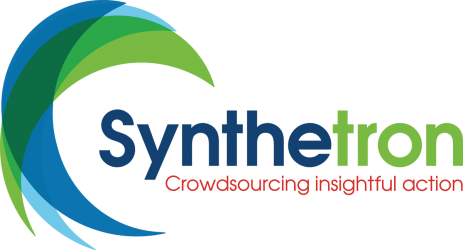We provide decision makers with deeper insights about what people really value, through unique online dialogues and innovative face-to-face engagement solutions
Deliberative Engagement
Design
We are thought leaders in the field of deliberative innovations and provide practical solutions and expert advice for all your engagement needs
Recruitment
We are Australia’s leading recruiter of participants for randomly selected, demographically stratified deliberative processes
Facilitation
The facilitation of deliberative processes is an art. We offer the expertise to ensure you realise your engagement goals
Management
We can manage your engagement project (end-to-end); embracing project design, recruitment, facilitation and coordination or any mix of the elements you need
We support your engagement needs through virtual or in-person forums
Management
Any engagement process has multiple moving parts. It is important to ensure that your engagement process remains on track and that the various elements of your process support and don’t undermine one another.
We can project manage your next deliberative engagement end-to-end by working in partnership with you to design, recruit, facilitate and coordinate your process.
The Deliberately Engaging team’s experience managing deliberative engagement processes enables us to ensure a consistent approach across the different elements, to maximise outcomes and minimise risks.
One key element of managing deliberative processes is to support existing stakeholders to understand the object of deliberative processes and the benefits to decision makers and their community from engaging the broader community.
Facilitation
Facilitating public deliberations is different from traditional facilitation of workshops and public meetings.
In deliberative processes participants are usually inexperienced in participating in consultative processes and come along with an open mind. It is important that they are supported to develop critical thinking skills and are provided with information from various perspectives on the issues they are being asked to consider.
Whereas public consultation processes focus on allowing individuals to present their point of view to decision-makers, deliberative processes aim to support the group to develop, as far as possible, a consensus view on behalf of the community.
Nivek from Deliberately Engaging is producing a new podcast series on the art of facilitating public deliberations that is moderated by Professor Lyn Carson and developed in partnership with the newDemocracy Foundation. On this podcast we talk with practitioners, advocates and academics about the history of pubic deliberations and the various approaches to facilitating them.
Recruitment
Deliberative participation such as mini public adds value to any decision-making process by giving a voice to community members who have a view but don’t usually attend public meetings or put in submissions.
Evidence from around the world tells us that the ‘silent majority’ is not silent because they are apathetic. Often, they don’t ‘see the point’ because they feel their views won’t be heard.
However, when invited to participate with other community members they invariably say that they are “honoured” to have been invited and selected to contribute to their communities. Around the world the recruitment of mini publics is undertaken in a variety of ways.
The traditional market research company approach is frequently subject to bias, with a study revealing that a large percentage of participants were political science students. Deliberately Engaging takes a different approach
Design
Successful deliberative processes require decision makers and engagement professionals to observe important principles including:
Clear Remit: Placing a clear, plain-English challenge or question before participants.
Informative: Providing all information necessary for an effective deliberation to enable participants to understand the issues and the arguments.
Reflective: Recruiting a random sample of participants from a community that is reflective of the demographics of the relevant community.
Participative: Designing a deliberative process in a manner that both encourages and maximise the involvement of all participants.
Influential: Decision makers being prepared to commit to giving significant consideration to acting on the recommendations arising from the deliberation.
Need advice or help designing your next deliberative engagement? Lets chat!
Online Engagement

We have the solution for fast and effective engagement in the digital age.
Online engagement is a great option especially for reaching young people; people from across the expanse of our states, country and region; and people who are either unable or unwilling to attend face-to-face meetings.
Deliberately Engaging is the Australian and New Zealand partner of the Synthetron global team of online engagement experts.
Employee Engagement
Deliberately Engaging helps business understand what people really think and value.
We provide decision makers with actionable insights to:
– assess the effectiveness of how work gets done;
– identify the change that’s needed to improve team effectiveness; and
– develop individual, team and organisational capabilities.
Balancing work skills, preferences and functions
Getting the best out of individuals and teams starts with recognising that:
- Different types of skills sets are essential;
- Different people prefer different types of work; and
- People tend to be better at tasks they prefer doing.
Research shows that employees are most effective when there is a good balance between the types of work assigned to them and their intrinsic work preferences. Deliberately Engaging uses Team Management Systems (TMS), an Australian-developed tool used by thousands of organisations around the world to build teams and make workplaces more effective.
Discovering what employees really think
Getting the best out of people and teams is aided by providing employees with meaningful ways to voice their views and concerns. But sometimes it’s not easy to find out what employees really think, particularly if the topic is sensitive or related to changes in business processes. The normal way to achieve this can be time consuming, subjective, unreliable and – if employees are working remotely – potentially near impossible.
Synthetron provides a great way to get insights about what employees really think and feel. Synthetron dialogues are anonymous, which means participants can honestly engage in moderated discussions about how work gets done. Synthetron shows your employees that you value their opinions.
“Ensure responsive, inclusive, participatory and representative decision-making at all levels” and
“Develop effective, accountable and transparent institutions at all levels”
